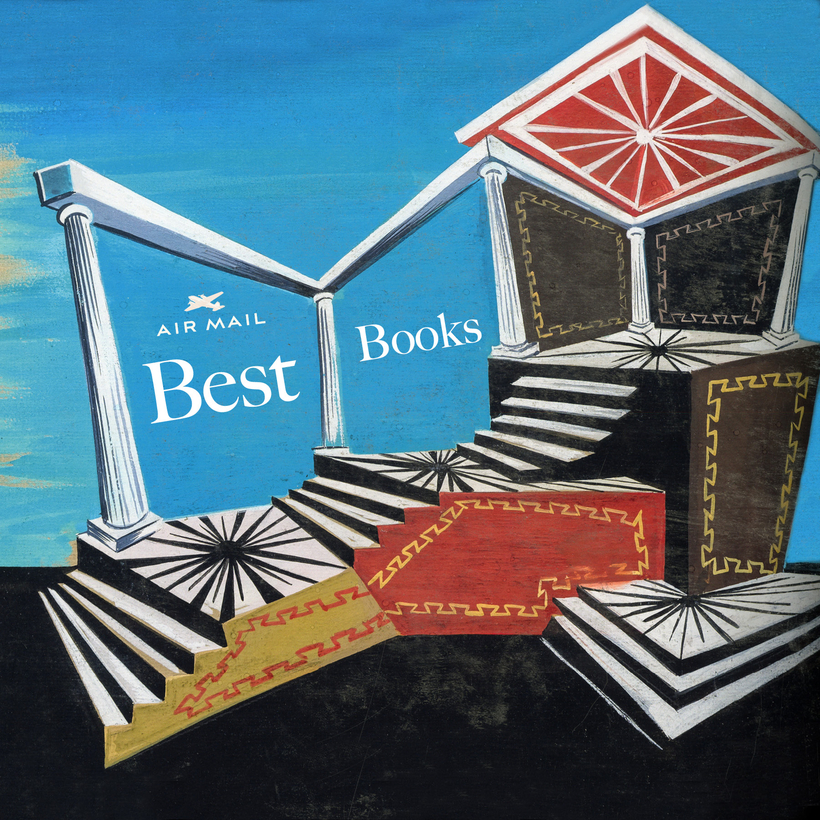
1.
A Thread of Violence: A Story of Truth, Invention, and Murder, by Mark O’Connell
True crime gets the literary treatment in this gripping, excellently crafted account of one of modern Ireland’s biggest scandals. Strapped for cash, a well-known Dublin socialite robs a bank and kills two innocent civilians in the process. He does jail time, gets out, and tells the author Mark O’Connell his side of the story. (O’Connell takes it with a hefty grain of salt.) Malcolm Mackay, the crime novelist behind the Glasgow Trilogy, reviews A Thread of Violence here.
2.
The Wager: A Tale of Shipwreck, Mutiny and Murder, by David Grann
Few nonfiction writers can spin a narrative as well as David Grann, whether it be the quest for a fabled place (The Lost City of Z) or unearthing gross injustices against oil-rich Native Americans in the 1920s (Killers of the Flower Moon). His latest book, The Wager, takes place in the 1700s and melds a mutiny-and-shipwreck tale with a courtroom saga that is nothing less than riveting. (And, as with Killers of the Flower Moon, Martin Scorsese and Leonardo DiCaprio have already bought the film rights.) You can read Jim Kelly’s interview with Grann about The Wager here.
3.
The Kingdom, the Power, and the Glory: American Evangelicals in an Age of Extremism, by Tim Alberta
Christianity and nationalism weren’t always synonymous. The latest from Tim Alberta—author, Atlantic writer (whose profile of CNN C.E.O. Chris Licht earlier this year led to his ousting), and son of a Presbyterian minister—chronicles the terrifying rise of the evangelical right in America, from the scandals of Jerry Falwell Jr. to the shrine to Trump that Robert Jeffress, a Dallas mega-church pastor, keeps in his office. You can read a review of the book by Matthew Teague (the author of the viral Esquire essay The Friend, later made into a film starring Casey Affleck, Dakota Johnson, and Jason Segel), whose own evangelical faith helped him overcome the death of his wife, here.
4.
Commitment, by Mona Simpson
Ever since her first book, Anywhere but Here, became a best-seller after being published in 1986, Mona Simpson has explored the ways families connect and disconnect. Her novel A Regular Guy (1996) is generally considered by critics to be partly inspired by the life and habits of her brother, Steve Jobs. Her newest, Commitment, centers on a single mother’s harrowing collapse and the fate of her family after she enters a California state hospital in the 1970s. You can read Jim Kelly’s interview with Simpson about the book here.

5.
King: A Life, by Jonathan Eig
Martin Luther King Jr. is not exactly an uncovered subject, yet Jonathan Eig’s book is the first full-scale biography in decades—and it succeeds in presenting King in a nuanced and revealing light. This is no hagiography, but neither is it sensationalistic. Eig argues persuasively and elegantly that King’s flaws were very much part of what turned his personal struggles into the struggle for civil rights, and no one can come away from this book without a freshly realized appreciation for his bravery. (We recommend the book in a recent Editor’s Picks column, here.)
6.
Judgment at Tokyo: World War II on Trial and the Making of Modern Asia, by Gary Bass
Most people know of the Nuremberg war-crime trials in Germany, widely regarded as a monument to international justice. The Tokyo war-crimes trials, not so much. In his massive, magisterial account, the Pulitzer Prize finalist Gary Bass shows how good intentions can go awry and sheds light on a fascinating time that saw the collapse of Western empires in the Far East, the rise of Communist China, and the astonishing birth of a modern, peaceful, democratic Japan from the ashes of a war-mongering, semi-feudal society. Evan Thomas, whose own book on the last days of World War II, Road to Surrender, was also published this year, reviews here.
7.
The Path to Paradise: A Francis Ford Coppola Story, by Sam Wasson
From The Big Goodbye author and AIR MAIL contributor Sam Wasson comes the definitive account of the Godfather and Apocalypse Now director Francis Ford Coppola’s years-long mission to re-invent American filmmaking. You can read an excerpt from the book, about Coppola’s nurturing of his fellow filmmakers—Steven Spielberg, George Lucas, and Martin Scorsese among them—here.
8.
The Half Known Life: In Search of Paradise, by Pico Iyer
In an essay called “Why We Travel,” Pico Iyer writes, “We travel, initially, to lose ourselves; and we travel, next to find ourselves.” His new book, The Half Known Life, is a distillation of sorts of what he has learned over many decades spent on the move, seen through the prism of what defines paradise for us and others. You can read Jim Kelly’s interview with Iyer about the book here.

9.
Lucky Dogs, by Helen Schulman
Two women on opposite ends of a high-profile sexual-abuse scandal set the stage for novelist Helen Schulman’s new book, a reminder that Harvey Weinstein’s downfall was the very least he deserved. Celia McGee reviews Lucky Dogs, which was also named one of Oprah’s 10 Best Novels of 2023, here.
10.
Fire Weather: A True Story from a Hotter World, by John Vaillant
With Elizabeth Kolbert’s Under a White Sky, Fire Weather, a deeply reported narrative of one of Canada’s most destructive recent wildfires, is an essential climate-change book of our time, offering both a cleverly constructed narrative and a strongly argued polemic on the culpability of the petrochemical industry in our hotter, increasingly flammable world. You can read Cal Flyn’s review of the book, a finalist for the National Book Award for Nonfiction, here.
11.
The World: A Family History of Humanity, by Simon Sebag Montefiore
If you’ve read any of British historian Simon Sebag Montefiore’s previous books, say, The Romanovs: 1613–1918 or Jerusalem: The Biography, you know how well he captures both the epic sweep of his subject and the telling anecdote. But none of those quite prepare you for both the panorama and detail of his new book, The World, which traces human history from the earliest families to present times. You can read Jim Kelly’s interview with Montefiore about the book here.
12.
Fear Is Just a Word: A Missing Daughter, a Violent Cartel, and a Mother’s Quest for Vengeance, by Azam Ahmed
So many thousands of innocent Mexicans have been killed by the cartels in that country that one is left numb, unable to comprehend the impact of those deaths on families and friends. In this masterful piece of reportage, Azam Ahmed zeroes in on one of those victims, Karen Rodríguez, who in 2014 was kidnapped from her town of Tamaulipas. Karen’s mother’s ensuing battle against the Zeta cartel is the heart of the story, but Ahmed also paints a chilling portrait of an entire system of justice that is both broken and corrupt. (We recommend Fear Is Just a Word in a recent Editors’ Picks column, here.)
Julia Vitale is a Deputy Editor at AIR MAIL


